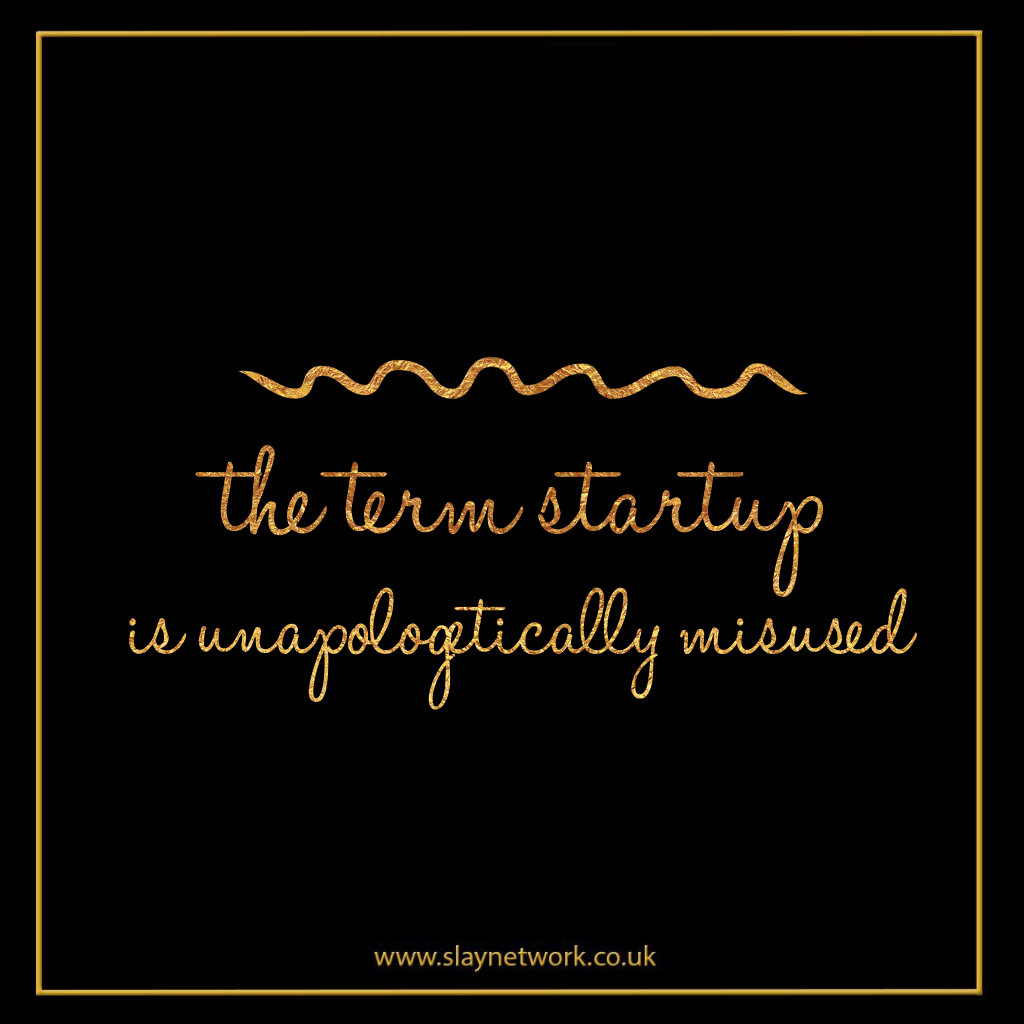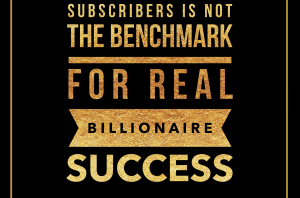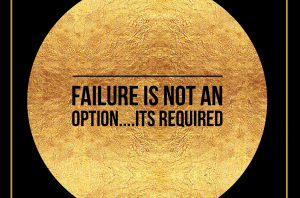
I am beginning to learn that the term “startup” is unapologetically misused.
To be a startup company is to be in a certain stage of growth. That’s it. A startup is a company that is starting.
And yet, the masses (and handfuls of aspiring entrepreneurs) have turned the term “startup” into a sort of title.
“Yeah, I’m working on my startup.”
“I just got funding for my startup.”
“I am the CEO of a successful startup.”
The word is paraded around like a trophy to represent a whole slew of virtues and traits many people (entrepreneurs specifically) want to have, but don’t. Saying you are the “founder of a successful startup” has become the socially acceptable way of walking around and saying: “Yeah, so I’m creative, successful, independent, thriving financially, and not afraid to go my own way.”
It’s the mental equivalent of wearing a small v-neck t-shirt to show off your biceps.
This, right here, is why most startups fail—because a “startup” is not a title, but rather a period of growth for a business. And since most companies don’t understand the difference, they start “companies” that don’t actually have a business model, don’t have cash flow, don’t have a clear understanding of how they’re going to actually create (and sustain) a future cash flow, and most of all, aren’t even completely sure whether people want their idea or not. They decided to build something based on their own subjective interests, instead of creating a clear solution to a proven problem in a market they understand well.
Let me give you two examples:
“Living the life” instead of building the business.
A lot of my friends, acquaintances, and those in parallel networks are entrepreneurs—some successful, some aspiring.
I know quite a few who have “startups” that aren’t actually making any money, and yet they live as if they’re building the next Facebook and swimming in cash. They buy designer clothes and post on Instagram about “entrepreneur life,” meanwhile behind the scenes they’re scrambling for cash. They tell people, in public, “Yeah, I’m the founder of a startup,” and I watch as people’s eyes widen in amazement: “Wow! You’re so young and already so successful!”
I stay quiet. It’s not my place to blow up their spot.
Even people who are my friends, people I like very much and who I’m sure one day will achieve some sort of success, indulge in this kind of behavior and it drives me crazy. I now understand why the Gary Vaynerchuk’s of the world can’t stand listening to young, aspiring entrepreneurs gloat about the success of their “startups,” when those very startups aren’t even profitable. Some of them aren’t even registered companies—and here the “founders” have plastered everywhere that they’re the “CEO.” And on top of all that, the ideas behind these startups haven’t even been validated.
I have had multiple opportunities to raise money, and I have declined every single time.
The second example I want to share is my own, and I don’t share this for a pat on the back, but rather to give you some perspective.
I am 27 years old. I just launched my first company with Drew Reggie called Digital Press. It’s a ghostwriting and influence agency we started after I had already validated a market need on my own: ghostwriting.
Over the past year, I have ghostwritten for probably 20+ different CEOs, serial entrepreneurs, and executives, each one having accomplished something truly astonishing in their careers. These aren’t 20-something “CEOs” who have never built a company. I’m talking about ghostwriting for people whose net worths are in the millions. Some tens of millions.
At a certain point, I realized two things:
1. There is a demand for high-quality writing.
2. Through years of my own writing online, I understand where to write and HOW to write in a way that builds a following.
So, what did I do? I spent a few months talking through a handful of ideas with Drew Reggie, until finally settling on the approach of turning what I was already seeing a lot of success with individually, into an agency offering.
Because of the network I have built for myself, and because people around me know my work ethic, I had several mentor figures offer to “fund” Digital Press. Immediately, they saw the value. They wanted to support it. They believed in me, and offered to invest money in startup costs.
I declined.
There were moments where Drew Reggie even suggested that we raise money or take out a loan so that we could grow even faster. I urged him not to.
I am patient. I have absolutely no problem forgoing today’s rewards for next year’s pay-off. Up until very recently, actually, I have spent years sleeping on air mattresses in studio apartments just so I could invest everything possible into my writing and my craft. But the real reason I didn’t want to raise money or take out a loan was because I knew that by bootstrapping and funding the thing ourselves, we would be FORCED to make more educated decisions. We would be FORCED to carefully monitor our cash flow. We would be FORCED to figure out the most efficient way of doing things. That’s what I wanted. I wanted to learn how to build a rock-solid business, not raise a bunch of money and “live the life.”
We were right.
The first 30 days of being in business, we blew away our own expectations by about 4x. We actually had to stop all our sales efforts because we were growing too quickly.
When you really break down what we were doing though, it’s not like we came up with some absolutely mind-blowing, game-changing idea. All we did was:
1. Test the market
2. Validate the idea
3. Take the validated idea and expand on it
4. Price the services to be profitable
5. Go
That’s it.
However, it’s steps 1 and 2 I realize a whole lot of people skip over. The reason Digital Press has become instantly successful is because I spent 4 years mastering online writing. I wrote every day. I got my own column in Inc Magazine. I ghosted for dozens of very accomplished CEOs. I learned all of their pain points. I got clear on what value I could provide the market. Then Drew Reggie came in and helped systematize it, brand it, and turn it into an agency offering.
Most startups fail because they don’t take the time to do their due diligence, or even really understand what it is they’re selling. They just leap into popular industries and chase trends. Or they create what they think people will want—instead of getting their hands dirty and figuring out what people are truly willing to pay for. Or, worst of all, they raise a bunch of money for an idea they haven’t vetted, in an industry they haven’t spent much time in.
Put the time in and master your craft from the ground, up.
It’ll make you exponentially more successful in the long run.
Now that you know what a startup is and what it is Not, Click here to start your own startup
By Drew Reggie





